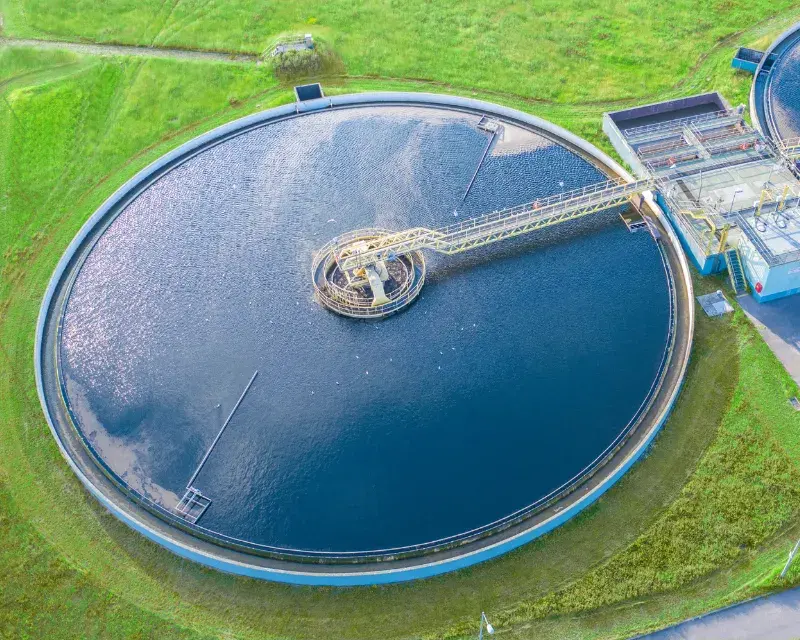Water is an essential resource for life, economic development, and environmental health. However, with increasing population growth, urbanization, and climate change, the demand for sustainable water management solutions has never been greater. Engineering consultation plays a critical role in developing and implementing strategies that ensure water resources are managed efficiently and sustainably. In this comprehensive guide, we explore insights from engineering consultation experts on how to achieve sustainable water management.
The Importance of Sustainable Water Management
Sustainable water management involves using water resources in a way that meets current needs without compromising the ability of future generations to meet theirs. This encompasses a range of practices aimed at conserving water, reducing waste, and protecting water quality. Effective water management is vital for:
1. Ensuring Water Availability
– Sustainable practices ensure that water remains available for domestic, agricultural, and industrial use.
2. Protecting Ecosystems
– Maintaining healthy water ecosystems supports biodiversity and provides essential services like flood control and water purification.
3. Mitigating Climate Change Impacts
– Efficient water management helps mitigate the effects of climate change by promoting resilience to extreme weather events such as droughts and floods.
4. Supporting Economic Development
– Reliable water supplies are crucial for economic activities, including agriculture, manufacturing, and tourism.
The Role of Engineering Consultation in Water Management
Engineering consultants bring expertise in designing, implementing, and managing water systems that are both efficient and sustainable. Their role includes:
1. Assessment and Planning
– Water Audits: Conducting detailed audits to assess current water usage, identify inefficiencies, and recommend improvements.
– Resource Planning: Developing comprehensive water management plans that balance demand with sustainable supply.
– Risk Assessment: Evaluating risks related to water scarcity, pollution, and climate change, and devising strategies to mitigate these risks.
2. Design and Implementation
– Infrastructure Design: Designing sustainable water infrastructure, including reservoirs, treatment plants, and distribution systems.
– Technology Integration: Incorporating advanced technologies such as smart sensors, IoT, and AI to enhance water management efficiency.
– Green Solutions: Implementing eco-friendly solutions such as rainwater harvesting, greywater recycling, and constructed wetlands.
3. Monitoring and Management
– Real-Time Monitoring: Using advanced monitoring systems to track water usage, quality, and system performance in real-time.
– Data Analysis: Analyzing data to identify trends, detect leaks, and optimize water distribution.
– Maintenance and Upgrades: Regular maintenance and upgrading of water infrastructure to ensure long-term sustainability and efficiency.
Key Strategies for Sustainable Water Management
Engineering consultants employ a variety of strategies to promote sustainable water management. Here are some of the most effective approaches:
1. Water Conservation
– Demand Management: Implementing measures to reduce water consumption, such as promoting water-efficient appliances and fixtures.
– Public Awareness Campaigns: Educating the public about the importance of water conservation and encouraging responsible water use.
2. Water Recycling and Reuse
– Greywater Recycling: Treating and reusing greywater from showers, sinks, and washing machines for non-potable uses such as irrigation and toilet flushing.
– Industrial Water Reuse: Recycling water within industrial processes to reduce fresh water consumption and minimize waste.
3. Stormwater Management
– Green Infrastructure: Using permeable pavements, green roofs, and rain gardens to manage stormwater runoff and recharge groundwater.
– Flood Control Systems: Designing and implementing systems to manage stormwater and reduce the risk of flooding in urban areas.
4. Water Quality Protection
– Pollution Prevention: Implementing measures to prevent contamination of water sources from industrial, agricultural, and urban activities.
– Water Treatment: Using advanced treatment technologies to ensure that water meets quality standards for various uses.
5. Integrated Water Resources Management (IWRM)
– Holistic Approach: Managing water resources in a holistic manner that considers the interconnections between water, land, and ecosystems.
– Stakeholder Engagement: Involving all stakeholders, including local communities, industries, and governments, in the decision-making process.
Case Studies: Successful Sustainable Water Management Projects
Several cities and regions have successfully implemented sustainable water management practices with the help of engineering consultants. Here are a few notable examples:
1. Singapore
– NEWater Initiative: Singapore’s innovative NEWater initiative involves treating and purifying used water to produce high-quality reclaimed water. This project has significantly reduced the country’s reliance on imported water and enhanced water security.
2. Australia
– Murray-Darling Basin Plan: The Murray-Darling Basin Plan is an integrated approach to managing water resources in Australia’s largest river system. Engineering consultants played a key role in developing and implementing strategies to balance water use between agriculture, industry, and environmental needs.
3. Netherlands
– Room for the River Program: In response to increasing flood risks, the Netherlands implemented the Room for the River program, which involved creating additional space for rivers to safely overflow. This project combined engineering solutions with natural flood management techniques.
The Future of Sustainable Water Management
The future of sustainable water management will be shaped by advancements in technology, innovative practices, and a continued focus on sustainability. Key trends to watch include:
1. Smart Water Management
– The use of smart technologies such as IoT, AI, and big data analytics to optimize water management, enhance efficiency, and reduce waste.
2. Decentralized Water Systems
– The development of decentralized water systems that provide localized water treatment and distribution, reducing the burden on central infrastructure and enhancing resilience.
3. Climate-Resilient Infrastructure
– Designing and implementing water infrastructure that is resilient to the impacts of climate change, including extreme weather events and rising sea levels.
4. Sustainable Agriculture Practices
– Promoting sustainable agricultural practices that reduce water consumption, enhance soil health, and minimize pollution.
Conclusion
Sustainable water management is essential for ensuring the availability and quality of water resources for future generations. Engineering consultation plays a critical role in developing and implementing innovative solutions that promote efficiency, sustainability, and resilience in water management.
By leveraging the expertise of engineering consultants, cities and regions can address their unique water challenges and achieve sustainable water management goals. Whether it’s through advanced technologies, integrated planning, or stakeholder engagement, the insights and strategies provided by engineering consultation are key to securing a sustainable water future.
Invest in expert engineering consultation services to explore sustainable water management solutions tailored to your needs. Embrace the future of water sustainability and ensure a reliable and resilient water supply for generations to come.
Achieving sustainable water management requires a comprehensive and collaborative approach. Engineering consultants provide the expertise and innovative solutions needed to navigate the complexities of modern water management. Explore how consultation can help you achieve your sustainability goals and secure a thriving future for your community and environment.






